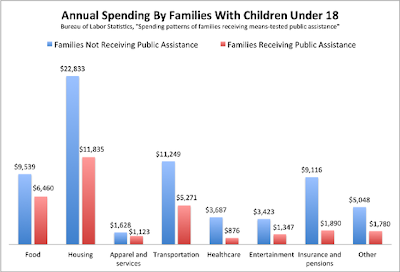If anyone is still wondering why back in June Zero Hedge first presented what the adverse impact on housing affordability as a result of soaring rates, today’s NAR release on existing home sales should set all questions to the side. Because after rising in a seemingly relentless fashion, existing home sales have (and this is before the traditional downward revision by Larry Yun’s conflicted organization which will expose all of its numbers as flawed regardless) finally hit a brick wall, and not only did November existing home sales tumble from 5.12MM to 4.90MM, missing estimates of 5.02MM, they also posted the first year over year decline in 29 consecutive months of increases.

Of course, as a reminder only 40% of house buyers actually use a mortgage, and the remaining 60%, as Goldman estimated recently, are all cash. Which means that not only are the all cash buyers fading out of the housing market at an ever faster pace, but if left only to the mortgaged-buyers, then watch out below.
Finally, and as usual, in addition to rising rates, Larry Yun was quick to cast blame on lack of inventory and supply. Perhaps he should speak to the likes of Bank of America which are keeping millions of empty units on its books following fraudulent foreclosure practices, in a desperate attempt to extract that one final bit of inventory subsidy from the housing market.
From the NAR release:
Existing-home sales fell in November, although median prices continue to show strong year-over-year growth, according to the National Association of Realtors®.
Total existing-home sales, which are completed transactions that include single-family homes, townhomes, condominiums and co-ops, dropped 4.3 percent to a seasonally adjusted annual rate of 4.90 million in November from 5.12 million in October, and are 1.2 percent below the 4.96 million-unit pace in November 2012. This is the first time in 29 months that sales were below year-ago levels.
Lawrence Yun, NAR chief economist, said the market is being squeezed. “Home sales are hurt by higher mortgage interest rates, constrained inventory and continuing tight credit,” he said. “There is a pent-up demand for both rental and owner-occupied housing as household formation will inevitably burst out, but the bottleneck is in limited housing supply, due to the slow recovery in new home construction. As such, rents are rising at the fastest pace in five years, while annual home prices are rising at the highest rate in eight years.”
The national median existing-home price for all housing types was $196,300 in November, up 9.4 percent from November 2012. Distressed homes – foreclosures and short sales – accounted for 14 percent of November sales, unchanged from October; they were 22 percent in November 2012. A smaller share of distressed sales is contributing to price growth.
Nine percent of November sales were foreclosures, and 5 percent were short sales. Foreclosures sold for an average discount of 17 percent below market value in November, while short sales were discounted 13 percent.
Total housing inventory at the end of November declined 0.9 percent to 2.09 million existing homes available for sale, which represents a 5.1-month supply at the current sales pace, compared with 4.9 months in October. Unsold inventory is 5.0 percent above a year ago, when there was a 4.8-month supply.
The median time on market for all homes was 56 days in November, up from 54 days in October, but well below the 70 days on market in November 2012. Short sales were on the market for a median of 120 days, while foreclosures typically sold in 59 days, and non-distressed homes took 55 days. Thirty-five percent of homes sold in November were on the market for less than a month.
According to Freddie Mac, the national average commitment rate for a 30-year, conventional, fixed-rate mortgage rose to 4.26 percent in November from 4.19 percent in October; the rate was 3.35 percent in November 2012.
More so-called NAR “data”
All-cash sales comprised 32 percent of transactions in November, up from 31 percent in October and 30 percent in November 2012. Individual investors, who account for many cash sales, purchased 19 percent of homes in November, unchanged from October and from November 2012. Last month, seven out of 10 investors paid cash.
Single-family home sales fell 3.8 percent to a seasonally adjusted annual rate of 4.32 million in November from 4.49 million in October, and are 0.9 percent below the 4.36 million-unit level in November 2012. The median existing single-family home price was $196,200 in November, which is 9.4 percent above a year ago.
Existing condominium and co-op sales dropped 7.9 percent to an annual rate of 580,000 units in November from 630,000 units in October, and are 3.3 percent lower than the 600,000-unit pace a year ago. The median existing condo price was $197,400 in November, up 10.0 percent from November 2012.
What can we say: perfect timing for Ben to start tapering.







via Zero Hedge http://feedproxy.google.com/~r/zerohedge/feed/~3/8292ANb52do/story01.htm Tyler Durden
![]()
















